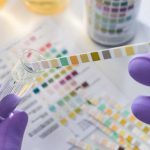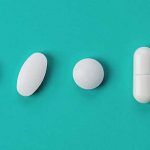- Signs Of A Hydrocodone Overdose
- Symptoms Of A Hydrocodone Overdose
- What To Do If You Suspect An Overdose
- Treating A Hydrocodone Overdose
Hydrocodone is a schedule II opioid medication prescribed for those suffering from chronic pain. Just as many prescription painkillers can be misused, so can hydrocodone.
In fact, according to the National Institute on Drug Abuse, 21-29 percent of people who are prescribed this pain medication partake in substance abuse.
Some of the common brand names of hydrocodone that are prescribed include:
- Vicodin
- Norco
- Anexsia
- Lortab
- Lorcet
- Zydone
Those who abuse hydrocodone have a risk of overdose. Whether a person takes higher doses of the medication than prescribed or they use other methods to abuse the drug, an opioid overdose is possible and can result in serious harm to your health.
Signs Of A Hydrocodone Overdose
When a person is suffering from a hydrocodone overdose, there may be signs that others may notice. Many of these signs may overlap with side effects of the medication.
This is why it’s crucial to monitor a person who has been prescribed hydrocodone.
For instance, a person may experience overdose signs such as nausea, drowsiness, and apnea. There may also be other signs the person experiences such as constipation, low blood pressure, and tiredness accompanied by slowed breathing.
Symptoms Of A Hydrocodone Overdose
A Hydrocodone overdose causes severe symptoms. However, this pain reliever also produces a wide range of common mild symptoms.
Mild Symptoms
Some of the mild symptoms of a hydrocodone overdose include:
- change in body temperature
- clammy skin
- pinpoint pupils
- hypotension
Severe Symptoms
If a person is suffering from a hydrocodone overdose, immediate medical attention may be necessary. If left untreated, severe pain and life-threatening symptoms may occur such as:
- brain damage
- breathing problems such as shallow breathing
- muscle weakness
- coma
- shallow or slow breathing
- irregular heart rate and a weak pulse
- respiratory depression
- discoloration of the skin
- loss of consciousness
What To Do If You Suspect An Opioid Overdose
If you have noticed that a person taking hydrocodone has difficulty breathing and seems to be exhibiting symptoms of an overdose, contact your local poison control to receive poison help for the overdose right away.
According to the Centers for Diseases Control and Prevention (CDC), you should seek medical help right away if you believe a person has suffered an overdose. Call 911 immediately.
Treating A Hydrocodone Overdose
At the emergency room, doctors will examine the patient’s vital signs to determine the effects of hydrocodone and how severe the overdose may be. Activated charcoal or laxatives may be used to help flush the medication out of the patient’s system.
It’s also possible that healthcare workers may use the United States Federal Drug Administration (FDA)-approved drug naloxone to help reverse the effects of an overdose.
Addiction Treatment
To reduce further drug use and the risk of overdose, addiction treatment may be recommended.
Addiction develops when someone continues to use hydrocodone despite consequences, develops a dependence and experiences withdrawal symptoms when they stop use, and prioritizes drug use over day-to-day responsibilities.
To learn about our substance abuse treatment options, please contact Northeast Addictions Treatment Center today.
Sources
Written by
Northeast Addition Editorial Team
©2024 Northeast Addition Center | All Rights Reserved
This page does not provide medical advice.







